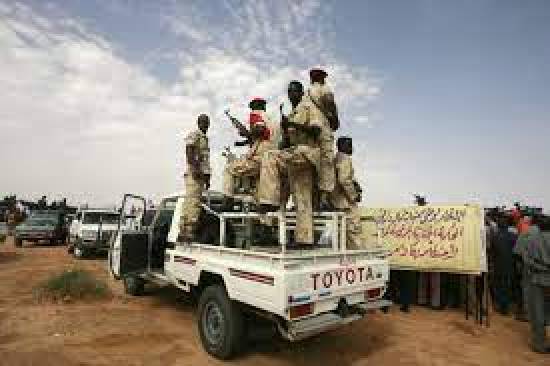15-year-old Sudanese refugee in Libya begs for his life as gunman demands money
A video is circulating online of a 15-year-old begging for his life as a gunman fires an empty rifle at him and asks him for money.
According to AP, the boy is Mazen Adam, a refugee from Darfur in Sudan who was kidnapped last week for ransom by armed gunmen in Libya.
In the video, reportedly sent to Mazen's father Adam from someone who had seen it on a WhatsApp group, the gunmen ask for $1,000 in exchange for his freedom.
Three days after the video spread on social media Mazen's father was also taken from his home by gunmen.
Mazen's father, Adam, told AP that in January he and his family were rounded up by Libyan authorities and held for three months in a detention centre where they were abused and guards burned their belongings.
Adam and his four children had moved to Libya in 2017 after the children's mother died amid violence in Darfur.
The video is a stark example of how refugees are mistreated in Libya, an issue highlighted by human rights groups for years.
Many refugees pass through Libya as a transit point to reach Europe and are often picked up by authorities or the coast guard as they try to escape and returned to the country.
In 2016 the EU began assisting the Libyan coast guard to patrol the central Mediterranean and return refugees to Libya.
Refugees in Libya have been arbitrarily detained, tortured, raped, sexually abused and forced into labour – serious abuse which makes their return unlawful.
The International Organisation for Migration (IOM) has estimated that roughly half a million sub-Saharan African migrants are in Libya, unable to escape, and at risk of exploitation by armed groups and authorities.
In 2016 the capital Tripoli was labelled the "capital of kidnappers" after two victims of families unable to pay the ransom, one a 14-year-old girl, were killed.
Around the same time a 65-year-old man was tortured and hanged after his family could not pay the half a million-dollar ransom. There were similar stories of kidnaps for ransoms all over the country.
Migrants have always been at risk of violence and trafficking in Libya, but it has worsened since the 2011 overthrow of Muammar Gaddafi and the power vacuum, economic crisis and circulation of weapons that followed.


